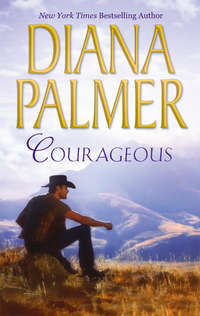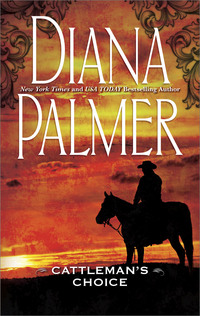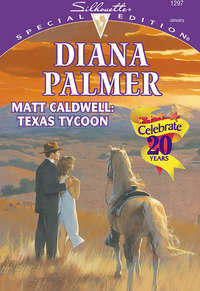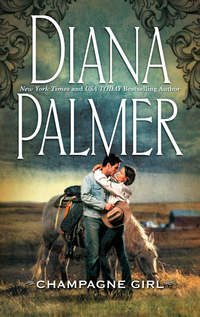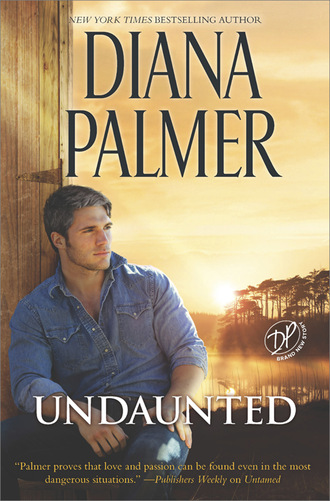
Полная версия
Undaunted
“I’d love that!”
Mamie smiled. “I thought you might. Okay. You know what to do. You can drive the speedboat, too, but no speeding,” she added firmly. “You don’t want to make Connor angry. Really, you don’t.”
Emma frowned at her employer. There was something odd about the way she’d said it.
Mamie sat down and folded her hands in her lap. “I wasn’t always a famous author,” she began. “I started out as a newspaper reporter on a small weekly paper. From there I moved to entertainment magazines, doing feature stories on famous people.” She grimaced. “One of them was Connor Sinclair. His best friend—who turned out to only be a distant acquaintance—had assured me that he had Connor’s permission to tell me things about his private life. So I quoted the man as my source and ran the story.”
“This sounds as though it ended unhappily,” Emma said when her companion was very quiet.
“It did. The man who gave me the quotes was a business rival who hated Connor and saw an opportunity to get even for a business account he lost. Most of what he told me was true, but Connor’s fanatical about his privacy. I didn’t know that until it was too late. Long story short, the magazine fired me to keep him from suing.”
“Oh, no.”
“It was a bad time,” Mamie recalled quietly. “I was just divorced, with no money of my own. I depended on that job to keep my bills paid and a roof over my head. I landed another job, with a rival magazine, a couple of weeks later. Luckily for me, that publisher didn’t like Connor and wasn’t going to be forced into putting me on the street for what another magazine printed.”
“He tried to have you fired from that job, too?” Emma asked, aghast at the man’s taste for vengeance.
“Yes, he did. So when I tell you to be careful about dealing with him, I’m not kidding,” Mamie concluded. “I would never fire you, no matter what he threatened. But I still work for publishers who can be threatened.”
“I see your point,” she said quietly. “I won’t make an enemy of him. I’ll make sure I stay out of his way from now on.”
“Good girl,” Mamie said gently. “You’re very special, Emma. I trust you, which is more than I can say about most people I know. I wanted children, but my husband didn’t.” She smiled sadly. “It’s just as well, the way things turned out.”
“Why is Mr. Sinclair so bitter?” Emma asked suddenly. “I mean, he never smiles and he’s always upset about something or someone. It just seems odd to me.”
“He lost his brother, his only sibling, in an accident on this lake. A drunk driver in a boat hit him and his wife in their houseboat and left the scene. They both died.” She swallowed. “Connor spent a fortune, they say, searching for the man’s location for the police. He was prosecuted and sent to prison. He’s still there.”
“Did the drunk man have family?”
Mamie nodded. “A wife and a little girl. They lost their home, their income... The child had to go to social services. The mother ended up dead of a drug overdose. It was a tragic story, all the way around.”
“Life is so hard for children,” Emma murmured, thinking of the poor little girl. Connor Sinclair was vindictive.
“It is.” Mamie looked around. “Well, I’d better be on my way. Come help me pack, Emma. I have a couple of evening dresses I want to give you. They’re too small for me, and they’ll suit you very well.”
“I never go anywhere to wear evening dresses.” Emma laughed. “But thank you very much for the thought.”
Mamie glanced at her. “You should be dating, meeting men, thinking about starting a family.”
“I haven’t met anyone I felt that way about, except Steven.” She shuddered. “I thought he was the perfect man. Now I’m not sure I’ll trust my judgment about a man ever again.”
“You’ll get over it in time, honey,” Mamie said, a gentle smile on her face. “There are plenty of handsome, eligible men in the world, and you have a kind heart. You don’t think so right now, but men are going to want you, Emma. That nurturing nature is something most men can’t resist. They don’t care as much for physical beauty as they do for someone who’s willing to sit up with them when they’re sick and feed them cough syrup.” She grinned.
Emma laughed, as she was meant to. “Well, one day. Maybe.”
Mamie left in a whirlwind of activity, met by a stretch limousine with a stately driver in a suit and tie. She gave Emma a handful of last-minute chores, a research assignment to complete for her next book and an admonition to be careful about going out after dark. Her parting shot was to stay off the lake in the speedboat until Connor went to his home in the south of France as he did most years just before Christmas.
Emma promised to be careful, but no more. The speedboat had become her solace. When she was out on the lake, with the wind blowing through her long hair and the spray of the water on her face, she felt alive as she’d never felt before.
* * *
She hadn’t told Mamie, but she was still wounded by Steven’s rejection several years later. She’d been too wounded to ever trust another man. She’d felt close to Steven, felt a sense of belonging to someone for the first time in her young life. His rejection had been painful. She’d always been shy, lacked self-confidence. Now she distrusted her own judgment about people. Steven had seemed so perfect. But he had prejudices she hadn’t known about.
Ideals were worthwhile, certainly, but it had been her father’s choice of vocations that had alienated him. He hadn’t considered that she might not feel as her father did. He simply walked away, without a backward glance.
For several weeks, she hoped that he might call or write, that he might apologize for making assumptions about her. But he hadn’t. In desperation, she’d written to a former girlfriend in San Antonio, where Steven had moved to, a mutual friend from high school. The friend told her that Steven was involved with a new organization—a radical animal rights group, much larger than the one he’d belonged to when Emma knew him. He and his friend were apparently still living together, too. Neither of them dated anybody. Steven said that he was never going back to Jacobsville, though. That was when Emma finally gave up. She wasn’t going to have that happy ending so beloved by tellers of fairy tales. Not with Steven, anyway. She walked idly through the woods, a stick held loosely in her hand. She touched it to the tops of autumn weeds as she walked, lost in thought.
She almost walked straight into the big man before she saw him. She jumped back as though he’d struck out at her. Her heart was beating a mad rhythm. She felt breathless, frightened, heartsick. All those emotions vied for supremacy in her wide brown eyes.
She bit her lower lip. “I’m sorry,” she said at once, almost cringing at the sudden fierce anger in his broad face.
His hands were jammed deep in his trouser pockets. He was wearing a beige shirt with tan slacks, and he looked, as usual, out of sorts.
He glared at her from pale glittering gray eyes, assessing her, finding her wanting. His opinion of her long brown checked cotton dress with its white T-shirt underneath was less than flattering.
“Well, we can’t all afford Saks,” she said defensively.
He lifted an eyebrow. “Some of us can’t even afford a decent thrift shop, either, judging by appearances,” he returned.
She stood on the narrow path through the woods that led to the lake. “I wasn’t trespassing,” she blurted out, reddening. “Mamie owns up to that colored ribbon on the stake, there.” She pointed to the property line.
He cocked his head and stared at her. He hated her youth, her freshness, her lack of artifice. He hated her very innocence, because it was so obvious that it was unmistakable. His whole life had been one endless parade of perfumed, perfectly coifed women endlessly trying to get whatever they could out of him. Here was a stiff, upright little Puritan with a raised fist.
“You’re always alone,” he said absently.
“So are you,” she blurted out, and then bit her tongue at her own forwardness.
Broad shoulders lifted and fell. “I got tired of bouncing soufflés, so I sent her home,” he said coolly.
She frowned, searching his face. He showed his age in a way that many older men didn’t. He pushed himself too hard. She knew without asking that he never took vacations, never celebrated holidays, that he carried work home every night and stayed on the phone until he was finally weary enough to sleep. Business was his whole life. He might have women in his life, but their influence ended at the bedroom door. And nobody got close, ever.
“Can you cook?” he asked suddenly.
“Of course.”
He raised an eyebrow.
“My father has a little cattle ranch in Texas,” she said hesitantly. “My mother died when I was only eight. I had to learn to cook.”
“At the age of eight?” he asked, surprised.
She nodded. Suddenly she felt cold and wrapped her arms around her body. “I was taught that hard work drives out frivolous thoughts.”
He scowled. “Any brothers, sisters?”
She shook her head.
“Just you and the rancher.”
She nodded. “He wanted a boy,” she blurted out. “He said girls were useless.”
His hands, stuffed in his pockets, clenched. He was getting a picture he didn’t like of her life. He didn’t want to know anything about her. He found her distasteful, irritating. He should turn around and go back to his lake house.
“You had a little girl with you a few days ago,” he said, startling her. “She was lost.”
She smiled slowly, and it changed her. Those soft brown eyes almost glowed. “She belongs to a friend of Mamie’s, a young woman from Provence who’s over here with her husband on a business trip. They’re staying at a friend’s cabin. The little girl wandered over here, looking for Mamie.”
“Provence? France?”
“Yes.”
“And do you speak French, cowgirl?” he asked.
“Je ne parle pas trés bien, mais, oui,” she replied.
He cocked his head, and for a few seconds, his pale eyes were less hostile. “You studied it in high school, I suppose?”
“Yes. We had to take a foreign language. I already spoke Spanish, so French was something new.”
“Spanish?”
“My father had several cowboys who were from Mexico. Immigrants,” he began, planning to mention that his grandfather was one.
“Their families were here before the first settlers made it to Texas,” she said, absently defending them.
His pale eyes narrowed. “I didn’t mean it that way. I was going to say that my grandfather was an immigrant.” He cocked his head. “You don’t like even the intimation of prejudice, do you?”
She shifted on her feet. “They were like family to me,” she said. “My father was hard as nails. He wouldn’t even give a man time off to go to a funeral.” She shifted again. “He said work came first, family second.”
“Charming,” he said and it was pure sarcasm.
“So all the affection I ever had was from people who worked for him.” She smiled, reminiscing. “Dolores cooked for the bunkhouse crew. She taught me to cook and sew, and she bought me the first dress I ever owned.” Her face hardened. “My father threw it away. He said it was trashy, like Dolores. I said she was the least trashy person I knew and he...” She swallowed. “The next day, she was gone. Just like that.”
He moved a step closer. “You hesitated. What did your father do?”
She bit her lower lip. “He said I deserved it...”
“What did he do?”
“He drew back his fist and knocked me down,” she said, lowering her face in shame. “Dolores’s husband saw it through the window. He came in to protect me. He knocked my father down. So my father fired Dolores and him. Because of me.”
He didn’t move closer, but she felt the anger emanating from him. “He would have found another reason for doing it,” he said after a minute.
“He didn’t like them being friendly to me.” She sighed. “I felt so bad. They had kids who were in school with me, and the kids had to go to another school where Pablo found work. Dolores tried to write to me, but my father tore up the letter and burned it, so I couldn’t even see the return address.”
“You should have gone with them,” he said flatly.
She smiled sadly. “I tried to. He locked me in my room.” She looked up with soft, sad eyes. “Mamie reminds me of Dolores. She has a kind heart, too.”
There was an odd vibrating sound. She frowned, looking around.
He held up the cell phone he’d kept in his pocket. He glared at it, turned the vibrate function off and put it back in his pocket. “If I answer it, there’s a crisis I have to solve. If I don’t answer it, there will be two crises that cost me a small fortune because I didn’t answer it.”
“I don’t even own a cell phone,” she said absently. It was true—Mamie paid for hers.
How would she pay for one, he almost said out loud. But he didn’t want to hurt her. Life had done a good job of that, from what he’d heard.
He nodded toward the sky. “It will be dark soon,” he said. “You shouldn’t be out alone at night.”
She managed a smile. “That’s what Mamie says. I’m going in.”
She turned, a little reluctantly, because he wasn’t quite the ogre she thought he was.
All the way down the path, she felt his eyes on her. But he didn’t say another word.
Two
Emma wondered about Connor Sinclair. She was curious why he was so angry, because she saw it in him, felt it in him. She didn’t want to think about him so much. He disturbed her, fascinated her, in ways she didn’t understand. Probably, it was because he was so hostile toward her. It had to be that.
Tired of the lake house, she walked to the marina and got into Mamie’s speedboat. Nobody saw her leave, but then, she had the key and she could come and go whenever she wanted to.
It was a beautiful early October morning. All around the lake, mostly trimmed with pine trees, a few hardwoods were beginning to show their lovely fall colors. The leaves turned more slowly here, in the foothills of the Appalachian Mountains. Up in North Carolina, people said, the leaf season was in full swing, attracting tourists from all over the piedmont. Around the North Georgia lake where Mamie’s house was situated, the maples were going to be glorious in their reds and golds. This was Emma’s favorite season. She loved the bright beginnings of the season, the many different shades that combined to turn the whole world bright and new in its last feverish gasp before winter.
She turned the boat toward the wide-open part of the lake and revved it up. She laughed as the wind blew her hair back, bit into her face, made her feel alive and young, as if the whole world was hers.
The sun was low on the horizon, making a bright trail in the water as she whirled the boat and sent it spinning toward the distant shoreline. It was so early that nobody was on the lake. She had it all to herself. She could step on the gas and never have to worry—
There was a horrible scraping sound, a horrible jolt that shook the boat and Emma.
“Damn it!”
The angry curse came out of nowhere, like the Jet Ski that she hadn’t seen in the brilliance of the morning sun that blinded her for just a few seconds.
She let off the gas, shaking from the collision and fear of what she’d done. She stood up in the boat, her eyes searching the water around her. There was a Jet Ski on the side of the boat toward the small cove.
“Oh, no, oh, no!” she cried. “I’m sorry!”
There was no answer. The Jet Ski revved and headed toward the distant dock. She knew at once whom she’d hit, and her blood froze. But he seemed to be all right. He got to the dock, and climbed off the Jet Ski. He sat there, seemingly disoriented, and called to someone.
As Emma watched, three people spilled out of the huge, luxurious lake house and ran toward him.
Unseen by the people in the cove, Emma eased the boat into motion and moved it back toward the marina. Her heart was racing like mad. She’d hit Connor Sinclair. He’d be out for her blood. He’d warned her. He’d threatened her. When he found out who’d hit him, she’d have no safe place to hide in the whole world.
She had no place to run. She couldn’t go home. Her father would want to know why she’d come, why he wasn’t getting the money she was supposed to send him every month. He’d be furious. Mamie was overseas and she’d called just once to tell Emma that she’d be in places where she wouldn’t have cell phone service for a few days.
Emma had all of a hundred dollars in her bank account and less than two hundred in savings. Not nearly enough to run and hide from a multimillionaire who’d want her arrested.
She drove the boat back to the marina, aware that it had a dent on one side where it had hit the Jet Ski. It was a sturdy boat. It didn’t seem any the worse for the collision. She drove it into the slip and got out, pausing to ask the custodian if the boat could be dry-docked, because Mamie was going to be away for the rest of the year and it was turning cold.
The older man smiled and said of course they could, and did she want him to beat out that dent in the hull? She smiled back, very calmly, and said that would be very kind; she’d hit a stump in the water too close to a cove.
That happened more often than folks realized, he said, chuckling. When the dam was built, and the land flooded, which created Lake Lanier, many trees had been covered with the water that became the lake. He’d do the work and send Mamie the bill, he promised.
Emma walked back to the lake house, prepared to find the lake police on the front porch waiting for her.
But they weren’t. She spent a sleepless night worrying about it, waiting for it. Connor Sinclair was her worst enemy. He’d never stop until he made her pay for what she’d done.
She hated her own cowardice. She was hiding from him, from retribution, from punishment. She hoped he wasn’t badly hurt, but what if he was?
* * *
On the second day after the incident, she got up enough nerve to call his lake house. It wasn’t listed under his name, just under its own designation: Pine Cottage. Only local people knew it was Connor Sinclair’s home.
Emma called the number and let it ring. Her heart was running wild as it rang once, twice, three times, four...
She was about to hang up when a female voice answered.
“Pine Cottage,” she said, using the name local people gave the sprawling vacation home.
“Is Mr. Sinclair available?” she asked in her most businesslike tone.
“Connor?” the woman replied. “Oh, no, he’s at the hospital. He fell off the Jet Ski and hit his head. Poor thing, he has no idea how it happened...is this Jewell?”
“No, this is Adrian Merrell’s personal assistant. Mr. Merrell was hoping to speak to Mr. Sinclair about an upcoming conference they’re both attending,” she lied.
“Merrell? I’ve heard that name. No matter, Connor won’t be going anywhere anytime soon, I’m afraid.”
“I’m very sorry to hear about his accident. I’ll tell Mr. Merrell. Thank you. Goodbye.”
She hung up. Connor was alive. He’d hit his head. Why wouldn’t he be going anywhere soon? Emma groaned as she wondered just how much damage she’d done. There hadn’t been anybody on the lake, she was certain of it!
But the sun had been in her eyes. She’d been daydreaming, not paying attention. How could she not have realized where she was, whose cove she was near? She could have cried at her lack of good sense, at her own recklessness. She hadn’t meant to hurt him. But would that matter in the end?
* * *
She agonized about it for the rest of the week. On her walks, she got near enough to the big house to tell that people were still coming and going. There didn’t seem to be any frenetic activity. She didn’t see lake police or ambulances there. Perhaps he knew it had been Emma who hit him, though, and he was just biding his time, waiting to let her worry about what he was going to do about the accident.
She finally realized that it was doing no good to wear ruts in Mamie’s carpet. She was hiding, like a coward. Whatever the consequences, she had to apologize and beg him not to press charges. She’d offer to work for him, free, to do anything within reason to help make up for injuring him. Surely he’d realize that she hadn’t done it maliciously. Then she recalled his warnings, his anger at her for earlier near-misses. He wasn’t going to be merciful. He’d want blood.
But hiding wasn’t helping her, either. She was a nervous wreck. She might as well face the music. She didn’t want Mamie to suffer for something that was her own fault. However painful, she had to face the music.
* * *
She walked slowly toward Pine Cottage. It was late afternoon on Saturday. There were boats scattered on the lake. The sailboats were elegant and beautiful. Emma loved to look at them. She wondered if Mr. Sinclair ever sailed. Mamie had said that he owned a sailboat. If only he’d been in it the previous week, and not on that stupid Jet Ski—
“Oh!” she exclaimed as she almost ran right into a huge man standing on the lakeshore. “I’m so sorry.”
Her voice caught in her throat as she met Connor Sinclair’s pale, glittering silver eyes. She bit her lower lip. She’d forgotten how dangerous he was. That cold gaze brought it all back. He’d probably call the police as soon as she told him what she’d done.
“My fault,” he returned. “I can’t see you.”
“You can’t...see...me?” she gasped. The horror of what she’d done made every muscle in her slender body clench. She’d blinded him. She’d blinded him!
He shrugged. “Concussion,” he said, turning toward the lake as if he could see it. “I fell off a Jet Ski and hit my head. Or so they say. I don’t remember any of it. They said it was a miracle that I made it back to the dock at all.”
“I’m...so sorry,” she choked. “Your sight...will it come back?”
“They don’t know. Five thousand dollars’ worth of tests to tell me that they’re not sure if I’ll see again. No more Jet Skis, for sure. Either way.”
She paused beside him. “I thought Jet Skis were dangerous,” she began.
“They are. I like dangerous things,” he said curtly. “Skydiving, race cars, testing planes, Jet Skis,” he added with a faint smile. “I had my housekeeper lead me down here. I’ll have to find my own way back. As I said,” he added whimsically, “I like dangerous things.”
“Why?”
Both thick eyebrows went up. He turned toward her voice. “What the hell do you mean, why?”
“Life is precious,” she said.
“Life is tedious, monotonous, maddening and joyless,” he shot back. “It’s hard, and then you die.”
“You stole that line from a retro television show,” she accused involuntarily, with a muffled laugh, and then flushed.
But he chuckled, surprised. “Yes, I did. Dempsey and Makepeace; you can find reruns of it on YouTube.”
Then he frowned. “Who are you, and why are you here?”
She had to think fast. Confession was good for the soul, she thought, but not yet. “I’m staying with a girlfriend for a couple of weeks. I’m sort of in between jobs. I got lost. I thought her cabin was this way, but nothing looks familiar here.”
“What do you do for a living?”
“Brain surgery,” she said pertly. “I took this mail-order course...”
He burst out laughing.
She was surprised, because he was a man who hardly knew how to laugh.
“Pull the other one,” he invited.
She grinned. “Okay. In my spare time, I make custom harnesses for frogs. So you can walk them.”
He let out a breath, and grinned. “What do you do?” he persisted.
She shrugged. “I’m a copy typist for a law firm. Or I was.”
“Why?”
“I was made redundant. Laid off sounds better, though.” She glanced at him. “It’s getting dark. Should you be out here by yourself when you can’t see? The lake is very deep.”
“Should you be out by yourself when you’re lost?” he shot back.
“No, I shouldn’t,” she said. “But you shouldn’t, either.”


